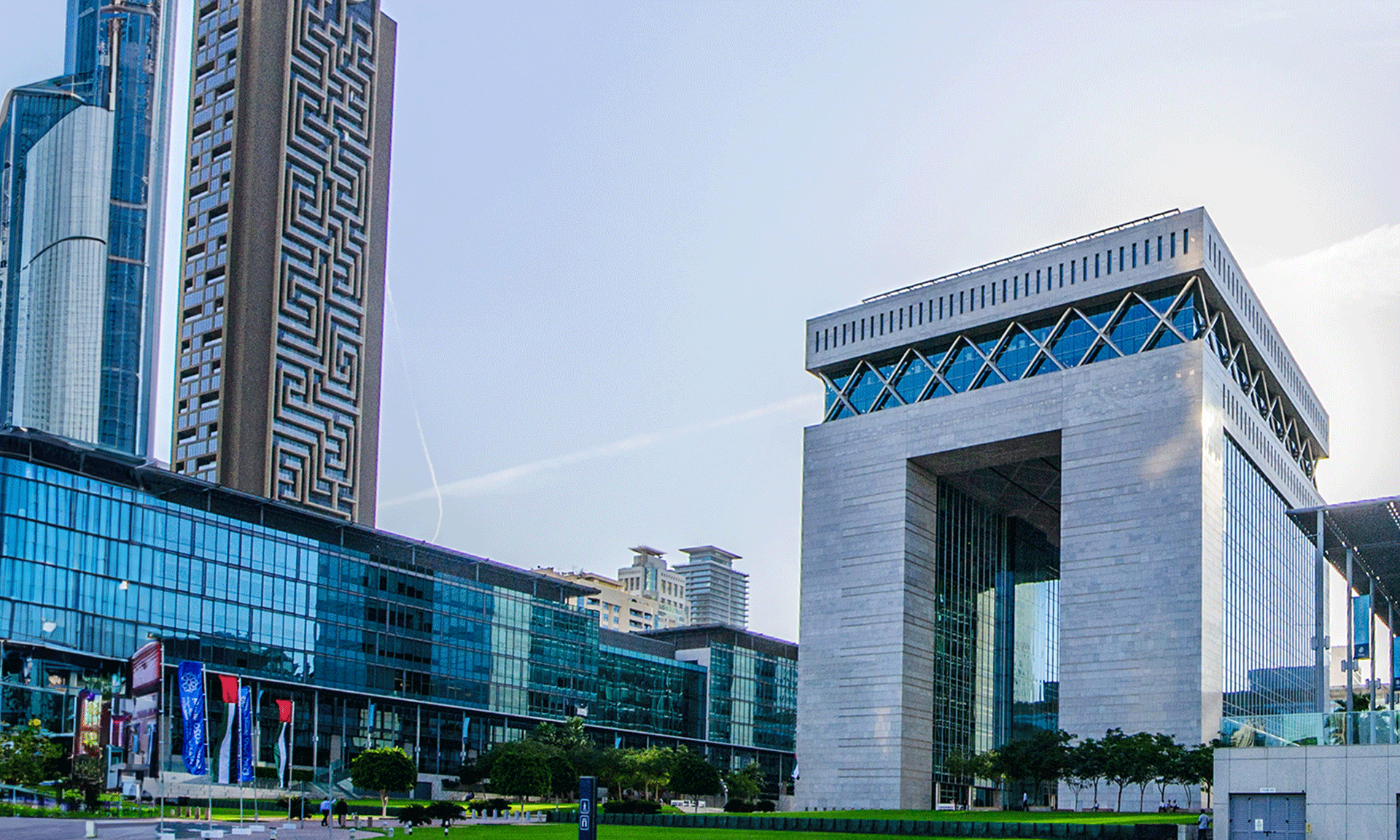
- Newsletter, U.A.E
- August 14, 2019
The Dubai International Financial Centre (DIFC), which is the leading global financial hub in this region, has announced new licensing classifications to make it simpler and more reasonable for companies and businesses to set up their base in the centre and do company registration in Dubai.
The following four new licencing categories have been introduced under the new Operating Law and Regulations: short-term licences, commercial permissions, restricted licences, and dual licences.
All the four new classifications have been introduced with a reduced licence fee and enhanced flexibility, thus permitting more firms to set up and do business out of the centre and do best company formation in UAE.
Khalid Al Zarouni, who is the Senior Vice President & Registrar of Companies at DIFC Authority, was of the view that the new categories of licences and fees launched under DIFC’s Operating Law and Regulations are a boon and a first of its kind in this region. This will enable all the businesses in DIFC to expand, while also boosting a better and specialized portfolio of businesses to set up in the financial centre.
The new amendments to the licencing regime are a response to market demand and to demonstrate the DIFC’s obligation to offering a nurturing business environment that is well balanced with suitable levels of protection, in compliance with international best practices.
Key highlights of the new four categories
Here are the major highlights of the four new licencing categories:
Short-term licences
Under this category, the retail businesses and all other non-financial companies would be now able to run their businesses out of the DIFC with flexible rates and shorter timeframes. This also includes a reasonably-priced registration fee of $100 and the licence fee between $300 to $5,100 as per the duration.
Restricted licences
This category of licenses is meant for companies interested in creating or testing new and innovative products or services in the DIFC. Companies getting this licence would benefit from a decreased registration fee of $100 and an annual licence fees that could range from $1,000 to $4,000. The objective is to offer better flexibility for innovation, advancement, testing and also access to the DIFC ecosystem, including incubator and accelerator programmes.
Commercial permissions
This category would permit both DIFC and non-DIFC companies like retail outlets, event companies, training providers and educational service providers to perform or run their main business activities in the DIFC at reasonable rates. Fees for commercial permissions vary between $100 to $2,000, depending on the activity and the duration.
Dual licencing
This kind of licence helps non-financial and non-retail entities that are licenced by the Dubai Economic Department, and having an affiliate in the DIFC for operating from the centre. These would include law and audit firms, family businesses, consultancy firms, holding companies and corporate service providers, who would get advantage from an annual fee of $1,000.

- Newsletter, U.A.E
- August 14, 2019
UAE is cutting down or withdrawing a range of federal government fees for the purpose of easing the cost of doing business in the country and increase its appeal to prospective investors.
A statement issued by the Ministry of Finance recently affirmed that the cabinet has announced a decision to withdraw or cut down some specific charges on approximately 1,500 federal services under three ministries by up to 50 percent. The reduced fee would come into effect from this month onwards.
Around 1,200 fees have been decreased or withdrawn at the Ministry of Interior, 80 fees at the Ministry of Economy and almost 200 fees at the Ministry of Human Resources and Emiratisation.
“These decisions are expected to further enhance the business environment in the UAE, empower entrepreneurs and encourage them to create new investment opportunities in the UAE,” the Ministry of Finance’s statement quoted.
This amendment will also help in the creation of additional jobs in the country while strengthening its competitive ranking and position as a global business hub. It will also help in enhancing the rate of company formation in Dubai and company formation in UAE.
Fees being cut down by the Ministry of Interior includes the fees of issuance or renewal of various security licenses, surveillance systems licences, and security guard licenses. The list of withdrawn fees also includes business and other industrial licensing services.
Fees will be cut down at the Ministry of Economy for renewal of registrations of foreign subsidiaries, registration or renewal process of foreign trademarks, the procedure of sale or acquisition services for international companies and dispute services.
The list of cancelled service fees includes the ones imposed on requests for detailed information, requests for registration or renewal of an agent, and fees for other additional services in an effort to “reduce (the) financial burden on companies operating in the country”, as per the statement.
The decreased fees in the Ministry of Human Resources and Emiratisation is going to include the issuance and renewal of the work permits, the alteration or change of employment contracts and training permits that are issued within the country and also for work permits issued outside the UAE.
The Ministry of Finance also mentioned that it would carry on reviewing all the fees for federal services and devise policies to decide the fees charge and the effect these have on the market.
So if you are looking for professional advice for your company or need good business setup consultants in Abu Dhabi, please get in touch with us, and we would be glad to help.

- India, Newsletter
- August 14, 2019
India has moved up five places in last one year and has reached to the 52nd position on the Global Innovation Index (GII), 2019. If we compare the last year’s data, India has gone up by 29 places in the last five years, thus reaching this rank.
Switzerland continues to top this list and Israel has for the first time found its way in the top ten.
India’s 2019 position in GII signifies the highest jump or move by any of the major economies in the world. India also continues to remain on the second position in terms of the innovation quality amid middle-income economies.
The ranking also represents that India has been able to sustain its leadership ranking as the most innovative country in the Central and South Asia region each year starting since 2011.
India also ranks 15th in the global companies’ R&D expenditures, due to its good and consistent performance in critical economic indicators like productivity growth and exporting services such as information and communication technologies this year.
Piyush Goyal, the Commerce and Industry Minister, said at the launch of the Global Innovation Index 2019that enabling and expediting entrepreneurship through innovation is a very important component under the vision of new India by the year 2022. India’s continuous rise at the global innovation index is an evidence of its people’s entrepreneurial prowess and the rate and success of company formation in India.
He also said that “Innovation does not come new to India and we are seriously looking at increasing our spends at R&D. Right from establishing hundreds of Atal Innovation Labs to Mangalyaan and Chandrayaan, this new approach and engagement adopted by the government have become the new hallmark of India as we move towards a more prosperous country.”
With consistent top ranking of our nation in GII, it is the best time to try your entrepreneurial journey. But in case you don’t know where to start or how to register a pvt. Ltd. company in India or how to go about company formation in Mumbai, then do get in touch with us and we would be glad to assist you.

- Article, U.A.E
- July 31, 2019
SME companies in Dubai or small and mid-size businesses have played a key role in encouraging the private sector and expanded the economic system. But now the question is if the year 2020 would enhance the financial impact of SME businesses located in Dubai and create new business opportunities for SMEs operating in Dubai?
The UAE economy is nurtured by SME firms in Dubai in a big way. As per current data, small and mid-size enterprises represent almost 96 percent of the total number of registered companies in Arab.
Next year, or 2020, is expected to bring a huge transition in the country. Some studies say that in 2020, there will be huge foreign investments by multinationals and many big corporate giants would enter the region. Due to this, the SME firms are anxious that their commercial characteristics would be sidelined. They also think their business opportunities would be restricted.
But UAE has done its ground work. After 2009’s economic downturn, UAE has prepared itself to deal with any global financial crisis such as fluctuations in economy, reduction of oil prices, etc. This is because of segregated business communities, business modules being based on knowledge, and investments in innovation-focused sectors which are majorly controlled by SME firms in Dubai and UAE.
There are over 4 lakh SMEs in Dubai which contribute around 60 percent of the GDP of UAE, and this figure has been rising with each passing year. In only Dubai, there are over 95 percent SME firms which add to the robustness of the economy.
UAE believes that the SME businesses in Dubai and in other parts of the region are its backbone. Thus, with the upcoming commercial plans for 2020, UAE has made it compulsory to integrate the SME firms through several programs. It is planning to adapt an approach where SME firms in Dubai and UAE get more flexibility and get equal opportunities to participate.
According to the latest reports, no advanced payment guarantees, no tender bonds and other similar leverages have been appointed for SME firms who are looking for collaborating on various government platforms. The SME sector is all set to almost 245,000 new jobs in the coming years particularly in tourism, event and hospitality sectors, which are set to grow by Dh143 billion. Besides, even IT start-up firms and consultancies will benefit hugely in 2020.
Do you want to take an approximation of how your company would fare in the year 2020? Or are you thinking if this is the right time for company formation in Dubai? Do get in touch with us and our professionals would guide you for business setup in Dubai free zone.
We at IMC, have the best experts of the industry who can help you with any assistance you require regarding company formation in Dubai or UAE. Just get in touch with us and we would offer you comprehensive solutions for business setup in Dubai free zone.

- Article, U.A.E
- July 23, 2019
Thinking of getting your business license renewed? It isn’t so tough now. Business licenses are renewed annually in Dubai, which can be now done in three simple steps. This is because of the new measures taken by DED or Dubai Department of Economic Development.
DED has come out with various initiatives such as registered agents and smart electronic services who help you with renewal. You can also just send an SMS and get renewal of your business license. With online renewal process, delays are also reduced and one ends up saving time and effort.
The three easy steps with which you can renew your business license are:
Check the tenancy contract’s validity: Your tenancy contract should be valid for a minimum of one month; and it’s better if it’s longer. Place of business is also of significance; hence, check the validity of your firm’s tenancy contract so as to avoid delays in getting the renewal.
Approvals needed for all business activities: Each particular business activity has selective requirements and could ask for certifications or licenses from specific authorities. For example, a car rental business or a private car service requires an approval from the Dubai Road and Transport Authority or RTA; however, a private medical clinic requires a certification from the Ministry of Health and Prevention from Dubai. So you need to get requisite approval from the business activity from the required judicial or government department before applying for the renewal of the business license.
Finally apply for renewal of your business license: Gather all the certifications and the duly-filled application for trade license renewal in Dubai. You can then submit your application to DED in various ways:
Offline Renewal: DED can renew your business license by offline modes like business service provider, law firms, authorised service agents, happiness lounge, etc.
Online Renewal: DED’s website and e-Services especially for the business customers on which they can do the renewal online. Getting the renewal done online saves time and effort and requires minimal paperwork.
Auto-renewal method: The Economic Department has started an auto-renewal process by which the renewal can be fast-tracked. The investors who want to renew their license only require to send an SMS along with their license number to 6969. The renewal cost is sent via SMS and the fee can be paid both offline and online.
The challenges in the process
If there is a delay or non-renewal of business license in Dubai, the company could have to pay a penalty and can also be blacklisted. The company’s plans to set up their business in the region in future could also be ruined. Therefore, many entrepreneurs feel that appointing an expert service provide in UAE is an easier and safer option.
If your documents are not in proper order, then the renewal of business license can take more time. You should be confident about your tenancy contract’s validity and have all your certifications in place. As running around various government agencies can be gruelling, many business owners find it easier to outsource this task.
So if you need assistance in getting your business license renewed or are looking for business setup consultants in Dubai or business setup in Dubai free zone, then get in touch with us. We can also help you with hassle-free process during company formation in Dubai.


- Article, Saudi Arabia
- July 16, 2019
The hospitality sector is ever evolving. Hotel industry being a part of it, is seeing a continuous and rapid transformation to lure the customers. In fact, for luxury hotels it is very important to keep a pace with the changes if they want to stay ahead in the market.
The hotel business in Saudi Arabia has a huge potential and it offers numerous opportunities to foreign companies looking to expand their business in the Kingdom. So taking advantage of doing business in Saudi Arabia, expanding your hotel business in the Kingdom is the right thing to do.
Why Saudi Arabia?
- Saudi Arabia is one of the friendliest countries in the world. The regulatory environment is favourable for doing business and the country holds a high position in the World Bank Group ranking. Moreover, Saudi Arabia is one of the favourite destinations for investors to put their money. In addition, it is one of the fastest growing economies of the world and most sociable place on the planet.
- The hotel industry in Saudi Arabia is expanding at a rapid pace. The demand for hotels is increasing for business as well as religious travellers. In fact, the country is garnering interest from many international hotel groups leading to construction of new hotels across the Kingdom. The hotel industry expansion in the country can be seen from the fact that approximately 6,500 guestrooms are currently in the development stage. This ensures that the investment in the hotel industry will continue in the years to come.
- Hajj and Umrah pilgrims make Saudi Arabia a lucrative place for entrepreneurs to set their hotels. Makkah, the holy city has the largest number of new hotels and accommodates millions of travellers every year.
After reading the benefits of expanding your hotel business in Saudi Arabia, if you have decided to enter the new market, the first question that you might be having is how to register a company in Saudi Arabia. To assist you in this regard, IMC Group is always at your service. We guide you during the entire process of registration and setting up a hotel in the country.
Here is how to go about setting up a business in Saudi Arabia:
- Get SAGIA Entrepreneurial License
The first step is to obtain the Saudi Arabian General Investment Authority (SAGIA) Entrepreneurial License. This license provides many incentive benefits to new companies. In addition, with this license, the new companies can leverage the services of the small and medium-sized business. Based on vision 2030, SAGIA aims to attract investors and entrepreneurs from across the globe to set up their own projects and businesses. Without SAGIA license, you would not be able to do business, set up a bank account and sponsor shareholders. IMC Group helps you in getting the license in the shortest time period.
- Incorporation Process
The next step is to complete all the incorporation formalities. The process includes signing the Article of Association and notarizing the documents. After 30 days of recording the Articles of Association, apply for the registration in the Commercial Register. The Ministry of Commerce and Investment issues the commercial registration. IMC Group assists foreign investors to complete their incorporation process. In addition, IMC Group applies for other licenses required by your business for various activities. To further ease your task, we take complete care of the renewal of your investment licenses.
- Office Setup
The last step is to set up your office in the country. With just 500,000 SAR, you can set up a branch office in the Kingdom of Saudi Arabia. IMC Group assists you in setting up the branch office in Saudi Arabia. With the help of our local expertise and knowledge about the country, you can offer unique services to your international and domestic travellers through the office.
The hotel industry of the Kingdom is growing rapidly and you must join the race to take advantage. You can enter the hotel industry in Saudi Arabia through a partnership with the local player. This will not only ease the process of hotel set up but also help you in giving better services to your customers. IMC Group is at your service to develop the local partnerships. Saudi Arabia is a country with strong values, customs and religious belief. IMC Group understands this fact very well. By establishing your business through us, you can be assured that your hotel business will follow the cultural adherence and a vision that will put you ahead of your competitors.

- Newsletter, Singapore
- July 15, 2019
Singapore and UK have signed three agreements in London recently that would encourage more collaborations in financial services.
A memorandum of understanding (MOU) was signed between the Monetary Authority of Singapore (MAS) and the City of London Corporation which will boost cooperation in facilitating data flows, improving cross-border know-your-customer processes, thus developing new skills and fostering green finance.
This MOU was signed by Tharman Shanmugaratnam who is a Senior Minister and City of London Lord Mayor Peter Estlin.
The MAS and the City of London have also recently inked a partnership arrangement regarding Britain’s Green Finance Initiative, which will encourage green and sustainable finance.
Then the third agreement, which was a declaration of intent, was done between the Institute of Banking and the Finance Singapore and Britain’s Chartered Body Alliance to partner more in fostering skills of the finance and insurance professionals.
The signing ceremonies were held during the UK-Singapore Business Summit at the Guildhall in London which commemorated Singapore’s bicentennial.
The Education Minister Ong Ye Kung also attended the summit.
The MAS and the Bank of England also collaborated to enhance cooperation in improving cyber security particularly for the financial services industry.
Mr Tharman was of the view that “The initiatives we are working on – data flows and governance, cyber security, skills development, and green finance – will enable continued dynamism and stability in Singapore’s and London’s financial centres.”
These agreements show the commitment of both these countries to make “free markets and multilateralism” which are the key characteristics that Mr Tharman mentioned in the summit’s opening address, stating that they are “especially important in our future relationship and collaboration”.
Both Mr Ong and Mr Tharman stressed on the deep ties among Singapore and Britain, their shared history, and their strong friendship and collaboration across various sectors.
Mr Tharman said that “Singapore and Britain are close friends with intertwined histories and a shared orientation towards the world. It is a strong base for our future partnership.”
Mr Ong pointed out the areas where collaboration could happen, for example, innovation, financial cooperation, and data and people-to-people exchanges and said that “This relationship will live on in the generations to come. It will simply be made more efficient and effective by the digital technologies that have made many things possible. Together, we will forge ahead in our cooperation for the new era.”
There were two panel discussions on topics like green finance, various opportunities available for partnership, and the interaction between innovation and regulation.
The panellists included the Senior Parliamentary Secretary Tan Wu Meng, Institute of Banking and Finance chief executive Ng Nam Sin, and Singapore Exchange chief executive Loh Boon Chye.
In addition, the Intellectual Property Office of Singapore, Lloyd’s Asia and Antares Underwriting Asia issued a new initiative to aid innovative businesses as they enter international markets.
The goal is to provide enterprises with insurance coverage especially for legal expenses that might be incurred in IP infringement proceedings worldwide.
Mr Tharman was also conferred with the Freedom of the City of London award to recognise his efforts to enhance ties between Singapore and London and for his noteworthy contribution to global financial governance.
Some previous recipients were Singapore’s founding Prime Minister, Mr Lee Kuan Yew, in the year 1982, and the Prime Minister Lee Hsien Loong in the year 2014.

- Newsletter, U.A.E
- July 15, 2019
Dubai’s economy is all set to show a strong performance in 2019 because of the government’s actions and on-time corrective measures like visa reforms, options for permanent residency, stimulus packages and various fee waivers to counterbalance the effect of a slowdown in global financial markets.
Latest reports issued by Dubai’s DED or Department of Economic Development indicated that the investor confidence is growing in the emirate as the department has issued about 35 percent additional business licences in the initial four months of 2019. This shows that there has been a spurt in DMCC company formation and JAFZA company formation.
The recent DED data showed that manufacturing and tourism sectors are likely to drive the growth in Emirates at 2.1 percent in 2019 and 3.8 percent next year. It credited the increase in GDP growth to an array of initiatives employed under the stimulus package of the Dubai government since quarter 2 of 2018.
It is also expected that Expo 2020 would add substantial value to the economy due to direct advantages to tourism, transportation, business, telecommunications, financial services, real estate and retail sectors. The government initiatives have helped in reducing the cost of doing business in various sectors like aviation, education and real estate, which in turn boost investments and growth.
The Business Confidence Index in Dubai also surged to 117.8 points right in the quarter 1 of 2019 as compared to 116.4 points in the same period of last year, as per a DED survey.
The firms participating in the survey said that they expected higher profits and selling prices in quarter 2 of 2019, mainly because of seasonal demand. The manufacturing sector has been the most hopeful on business volumes, incomes and employment. Overall, bigger businesses have larger expectations for quarter 2 of 2019 as compared to small and mid-level enterprises.
It is obvious that the Dubai economy is gradually moving from traditional sectors such as transshipments or real estate to long-term sectors such as manufacturing and services. This is set to make company formation in Dubai easier and more profitable and it will also make Dubai’s economy even more vibrant and appealing.
FDI inflows swell up
Data from the Dubai Investment and Development Agency’s Dubai FDI Monitor proved that a total FDI inflow of Dh22.2 billion has come into Dubai by the end of the quarter 1 of 2019 as compared to Dh7.3 billion in the same period of last year. A framework for a FDI Committee is under development and the DED is also participating in this exercise and is creating a guide for executing the new investment law, which is set to enhance foreign ownership to 100 percent in some sectors and fields to further attract inward FDI.
Tourism and hospitality sectors to grow even further
Tourism is another major sector in Dubai that has continued to expand with a 2.2 percent increase noted in arrivals in the first quarter of this year as compared to same quarter in 2018. The average occupancy rate of hotel rooms in Dubai has gone up to 79 percent in the period of January to March 2019 or quarter 1 as compared to 77 percent in the quarter 1 of last year.
The data published by the Dubai Statistics Centre shows that the general inflation rate in Dubai went down in the first quarter of this year to 3.72 percent as compared to a 2.27 percent hike in the same period of last year.
Jitendra Gianchandani, who is the chairman and managing partner of the Jitendra Consulting Group, said that Expo 2020 and new long-term visa initiatives are going to boost the confidence in the Dubai economy. “Dubai’s economy remained sluggish in 2018 due to lacklustre international business sentiments, post-VAT impact, stringent banking effecting local and free zone companies in most of the sectors. However, it is a good omen that the economy picks up speed in 2019,” he said.
“The government also needs to further strengthen the SME sector by opening up funding possibilities for such, as it will enhance both employment and economy further. The central bank can stipulate a minimum funding criteria for SMEs, which all banks need to follow,” he added.

- India, Newsletter
- July 15, 2019
Foreign payment companies like Mastercard and Visa are allowed to process transactions made in India outside of the country, however, the related data must be stored locally within 24 hours, as per the directive of the Reserve Bank of India (RBI). The announcement came to elucidate the central bank’s ordinance in April 2018 that directed foreign firms to ensure that they store their payments data “only in India” so that they get “unfettered supervisory access”.
The RBI rules resulted in an aggressive lobbying attempt from the U.S. government and American organizations who felt that the directive would escalate infrastructure costs and affect organizations’ investment plans. As per the Reuters report, the request to dilute the rules has been declined last year.
The RBI has recently stuck to its position but has made clear that the payment transactions are permitted to be processed outside the country in case the companies wish the same. The earlier RBI directive did not point on the fact if data could be processed abroad or must only be done locally only.
However, even in scenarios where the transactions were processed abroad, the RBI guided that the data should be “deleted from the systems abroad and brought back to India” and that too within 24 hours of the payment processing.
“The clarity on processing, and the ability to do so overseas, is a welcome development. Although the clarifications do not ease the local-only storage requirement,” said Kriti Trehan, a partner specializing in technology law at the Law Offices of Panag & Babu.
The RBI clarification has come after India’s commerce ministry, subsequent to a meeting with technology and payment firms, said the central bank is going to “look into” issues brought up by the industry.
The differences amid American firms and India have fuelled additional trade tensions between Washington and New Delhi. Recently, the U.S. Secretary of State, Mike Pompeo made efforts to lessen these tensions by assuring a renewed emphasis on negotiating better ties; however, he gave few specifics on his visit to New Delhi, the Indian capital.
India is looking at more stringent rules regarding data storage so that it can access data in a better way and carry on the investigations if the need arises.
Besides the RBI’s directive for payment firms, India has also made an overarching law around data storage which mandates that all the personal data which could be critical must be processed locally. So if you are planning new company formation in India or company incorporation in India then you must keep these directives in mind.
A Member Firm of Andersen Global
- 175+ Countries
- 525+ Locations
- 17,500+ Professionals
- 2350+ Global Partners


















 IMC Group
IMC Group